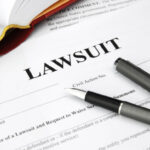A federal court of appeals has overturned a lower court’s ruling that an “anti-ambulance chasing” bill in Texas is unconstitutional.
The U.S. Court of Appeals for the Fifth Circuit determined that U.S. District Judge Lee Yeakel of Austin erred in ruling unconstitutional a law enacted in Texas in 2009 that aimed to prohibit solicitation of automobile accident victims for the first 30 days following an accident.
The pertinent section of the “Texas Barratry Statute regulates solicitation of professional employment by can attorney, chiropractor, physician, surgeon, or private investigator licensed to practice in [the] state or any person licensed, certified, or registered by a health care regulatory agency of [the] state,'” according to the written opinion delivered by the Fifth Circuit.
House Bill 148 by Rep. Todd Smith passed the state legislature in 2009. It expanded the statute to include a prohibition against telephone and in person solicitation. The former version of the statute only applied to written communications, the Fifth Circuit explained.
The appeals court decision came in Donald Mckinley, D.C.; Christopher Villasana, Plaintiffs-Appellees v. Greg Abbott, as Attorney General of the State of Texas, Defendant-Appellant.
Both the Fifth Circuit and the U.S. Supreme Court have previously established the importance of “protecting the privacy of accident victims within the first 30 days after their accident,” the Fifth Circuit’s opinion stated. It added that a state’s interest in protection that privacy is “substantial,” as well.
As such, the appeals court found that the Texas law was consistent with previously announced federal high court standards for restrictions on such post-accident solicitations of victims.
“Justice and plain common sense has prevailed in” the Fifth Circuit’s decision, said Mark Hanna, a spokesman for the Insurance Council of Texas and Texas Committee on Insurance Fraud. “This ruling allows prosecutors to go after this illegal solicitation which has become rampant in every major city in Texas. This is a huge victory for the public’s privacy and the fight against insurance fraud.”
HB 148 came under attack by a small group of health professionals and lawyers after it was enacted. A temporary restraining order to prevent HB 148 from taking effect was filed in federal court by a plaintiff attorney and chiropractor in August 2009.
Was this article valuable?
Here are more articles you may enjoy.

 Dog-Related Injury Claim Payouts Hit $1.12B in 2023, Report Shows
Dog-Related Injury Claim Payouts Hit $1.12B in 2023, Report Shows  Supreme Court Allows More Transport Workers to Bypass Arbitration and Sue Employers
Supreme Court Allows More Transport Workers to Bypass Arbitration and Sue Employers  Poll: Consumers OK with AI in P/C Insurance, but Not So Much for Claims and Underwriting
Poll: Consumers OK with AI in P/C Insurance, but Not So Much for Claims and Underwriting  Vintage Ferrari Owners’ Favorite Mechanic Charged With Theft, Fraud
Vintage Ferrari Owners’ Favorite Mechanic Charged With Theft, Fraud 